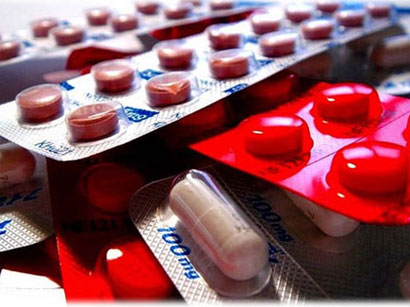Azerbaijan, Baku, Dec. 23/ Trend G.Mehdi/
Iran has spent some $2.5 billion at official rate of 12,260 rials in the first nine months of the current Iranian calendar year (March 20-December 20) for the purpose of importing medicine, the Fars News Agency quoted the Iranian Forex Center spokesman Samad Karimi as saying.
The figure was $100 million more than the total sum which was paid in the past year, he noted.
The Central Bank has set the official rate of the dollar at 12,260 rials, while the street rate is currently at 31,900 rials and the Forex Center of Iran offers the dollar at 24,600 rials.
On December 8, Iranian Health Minister Marziyeh Vahid Dastjerdi urged local banks to get currency for importing medicine into the country, Jahannews reported.
"There is no prohibition towards importing raw materials and medical equipment into the country. The only problem is the allocation of foreign currency to importing the necessary materials from abroad," Dastjerdi said.
The minister said that it is possible to find bypass ways for transferring money abroad, however nothing can be done with the allocating of currency.
Dastjerdi noted that the Central Bank of Iran allocated only 33 percent of what it was supposed to allocate to imports of medicine and medical materials from abroad.
"The ministry of health has already given all of that amount to importers," Dastjerdi said, adding that the situation with drug shortages is bad, and will get worse, if appropriate measures are not taken.
Iran's health minister has expressed hope that $2,5 billion will be allocated by the end of the year, for importing medicine and medical equipment.
On December 6, president of Iran's Medical Council, Shahab od-Din Sadr said that people in Iran today spend some 30 percent more money on drugs and medicine.
Sadr noted that while officially the percentage rate for people to pay for medicines should be 30 percent, it has increased in the recent months up to 60 percent, due to economic problems in the country.
He also said that Iran currently experiences problems with drug shortages and patient care in the country, and the rising healthcare costs create additional problems with people's livelihood.
Sadr underscored that about 13 percent of people in Tehran spend most of their money on medical expenses.
He said that the government has to allocate more currency, based on Central Bank's official rate, to the imports of necessary medicines and drugs into country's regions.






